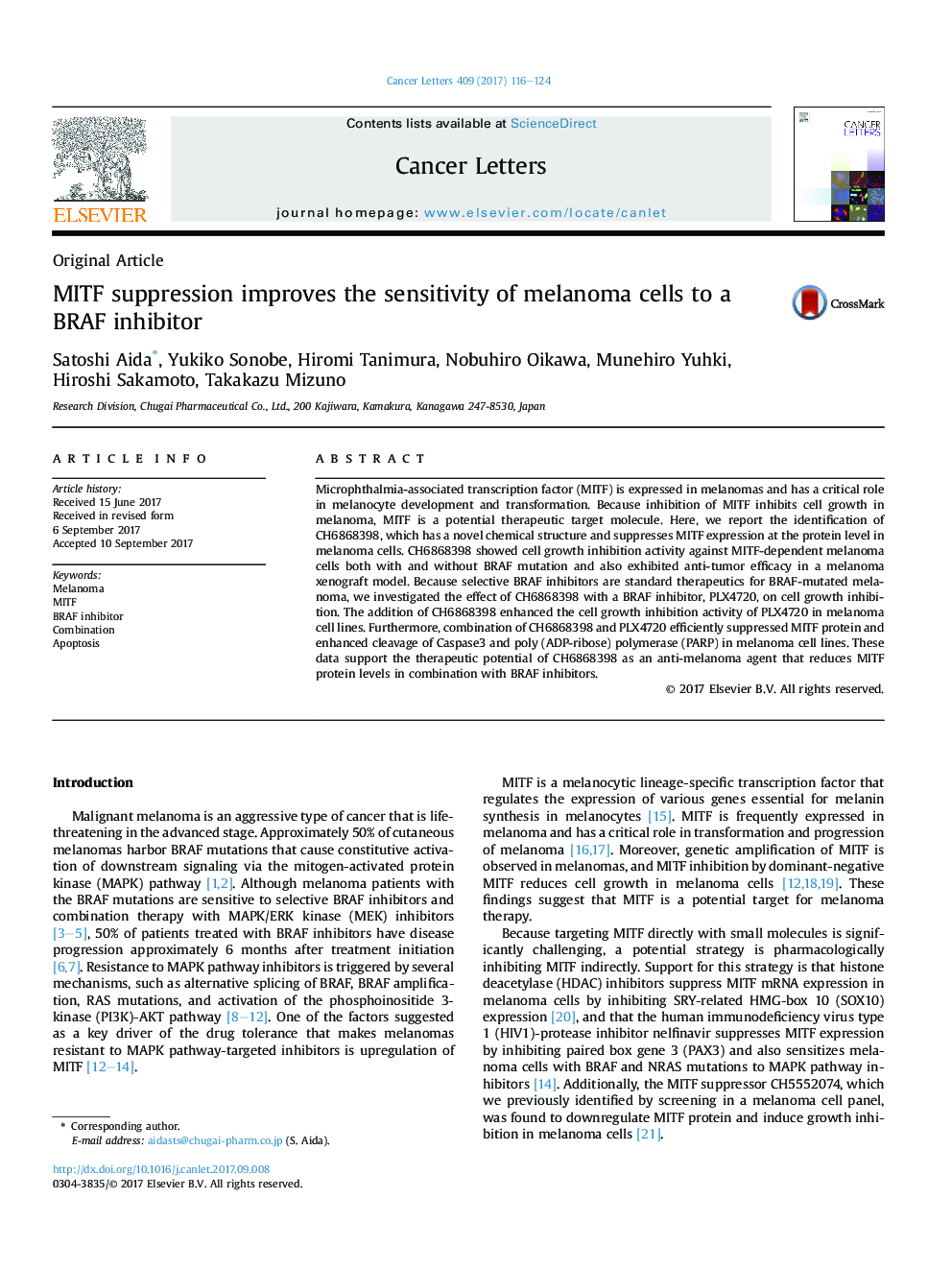| Article ID | Journal | Published Year | Pages | File Type |
|---|---|---|---|---|
| 5525169 | Cancer Letters | 2017 | 9 Pages |
â¢CH6868398 suppresses MITF expression at protein level in melanoma cells.â¢CH6868398 inhibits cell growth in melanoma cells.â¢CH6868398 has in vivo efficacy in a melanoma xenograft model.â¢The addition of CH6868398 enhances cell growth inhibition by a BRAF inhibitor.â¢Combination treatment of CH6868398 and a BRAF inhibitor induces apoptosis.
Microphthalmia-associated transcription factor (MITF) is expressed in melanomas and has a critical role in melanocyte development and transformation. Because inhibition of MITF inhibits cell growth in melanoma, MITF is a potential therapeutic target molecule. Here, we report the identification of CH6868398, which has a novel chemical structure and suppresses MITF expression at the protein level in melanoma cells. CH6868398 showed cell growth inhibition activity against MITF-dependent melanoma cells both with and without BRAF mutation and also exhibited anti-tumor efficacy in a melanoma xenograft model. Because selective BRAF inhibitors are standard therapeutics for BRAF-mutated melanoma, we investigated the effect of CH6868398 with a BRAF inhibitor, PLX4720, on cell growth inhibition. The addition of CH6868398 enhanced the cell growth inhibition activity of PLX4720 in melanoma cell lines. Furthermore, combination of CH6868398 and PLX4720 efficiently suppressed MITF protein and enhanced cleavage of Caspase3 and poly (ADP-ribose) polymerase (PARP) in melanoma cell lines. These data support the therapeutic potential of CH6868398 as an anti-melanoma agent that reduces MITF protein levels in combination with BRAF inhibitors.
